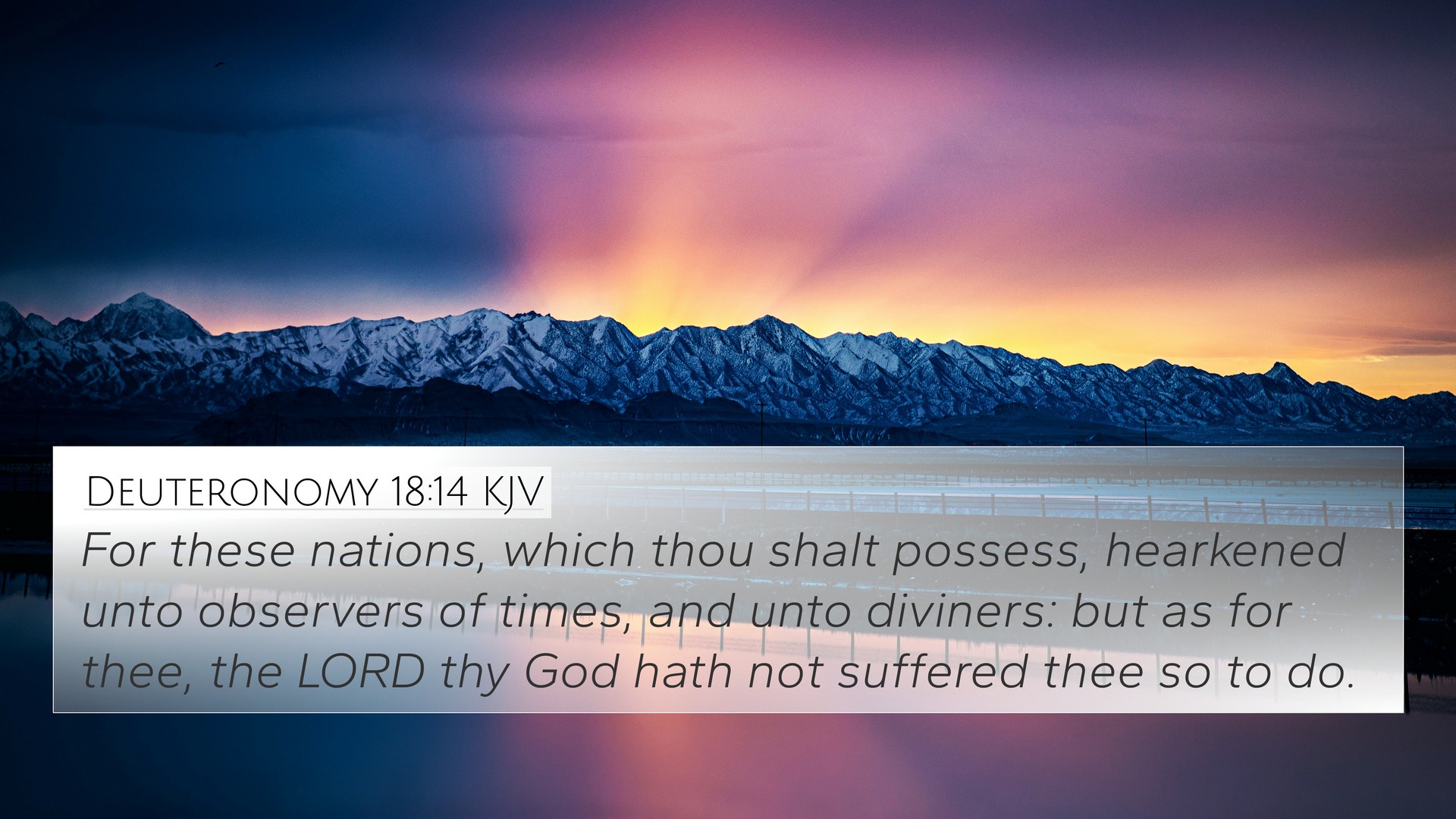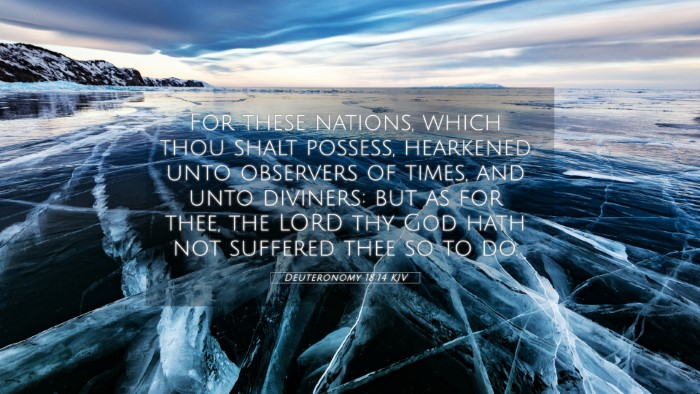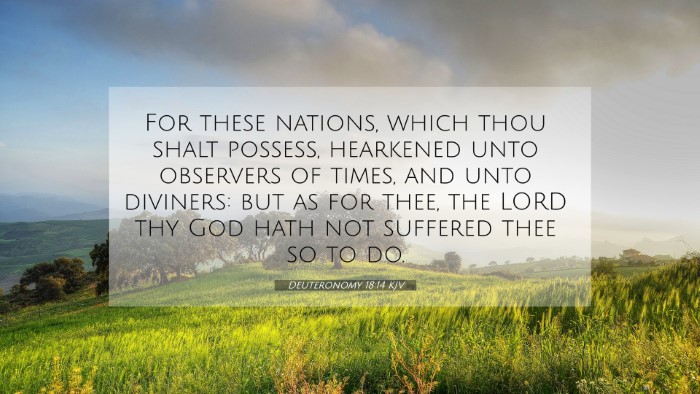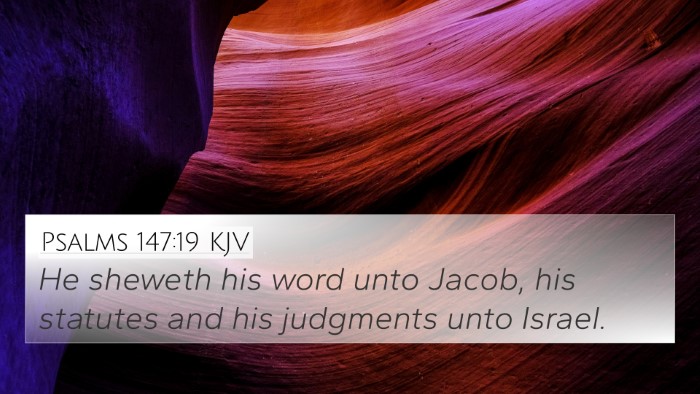Understanding Deuteronomy 18:14
Deuteronomy 18:14 states: "For these nations which thou shalt possess hearkened unto observers of times, and unto diviners: but as for thee, the Lord thy God hath not suffered thee so to do."
This verse addresses the Israelites' need for different spiritual guidance than the nations surrounding them. In this summary, we will explore the meanings and implications of this verse, drawing on insights from public domain commentaries by Matthew Henry, Albert Barnes, and Adam Clarke.
Contextual Background
Deuteronomy, as part of the Pentateuch, provides instructions from Moses to the Israelites as they prepare to enter the Promised Land. Chapter 18 outlines the roles of the Levites and warns against various pagan practices. The verse serves as a reminder to remain faithful to God rather than succumbing to foreign divinations and practices.
Commentary Insights
-
Matthew Henry:
Henry emphasizes that the Israelites must distinguish themselves from the practices of the nations around them. He notes that seeking guidance from God must take precedence over consulting fortune-tellers and sorcerers, practices that are both common and condemned.
-
Albert Barnes:
Barnes highlights the danger of following the same paths as the neighboring nations. He stresses that God forbids Israel from seeking insights through means that would divert them from divine guidance, reiterating the notion that true knowledge and guidance come exclusively from the Lord.
-
Adam Clarke:
Clarke points out the cultural context of divination practices of the time and how such practices were prevalent among the Gentiles. He notes that God's instruction to Israel is to rely on Him alone for direction and wisdom, underlining the covenant relationship established through the law.
Thematic Connections
This verse connects with various biblical themes concerning divine guidance, the dangers of idolatry, and the uniqueness of God’s people. Israelites are reminded that their relationship with God is exclusive and irreplaceable.
Cross References
- Leviticus 19:31: Prohibitions against seeking mediums.
- Isaiah 8:19-20: Call to the law and to testimony instead of consulting spirits.
- Jeremiah 14:14: Reproof against false prophets.
- Micah 5:12: God’s promise to cut off witchcraft from the land.
- 1 Samuel 28:7-25: The story of Saul consulting the witch of Endor.
- Acts 16:16-18: Paul confronts a spirit of divination.
- Revelation 22:15: Exclusion of sorcerers from the city of God.
Conclusion
Deuteronomy 18:14 serves as an essential reminder of the importance of divine guidance over worldly wisdom. The Israelites are called to trust in God alone, rejecting the pagan practices observed in other nations. This verse sets a foundation for understanding the significance of spiritual integrity and fidelity to God throughout the Scriptures.
Further Study Tools
To delve deeper into the meaning and connections of Deuteronomy 18:14, consider utilizing various resources:
- Bible concordance: Helps identify themes and subjects related to the verse.
- Bible cross-reference guide: Aids in finding verses that offer supportive context.
- Cross-reference Bible study: A method to explore interconnections across Scripture.
- Bible reference resources: Useful for deeper theological research.
- Cross-referencing Bible study methods: Enhances understanding through comparative analysis.
In Summary
Deuteronomy 18:14 is pivotal in emphasizing the exclusive right of God to guide His people. Through careful examination of cross-references and insights from notable commentaries, believers are encouraged to seek and rely solely on God's wisdom. This verse not only has profound implications for the Israelites but also serves as a lasting principle for all who follow God today.






